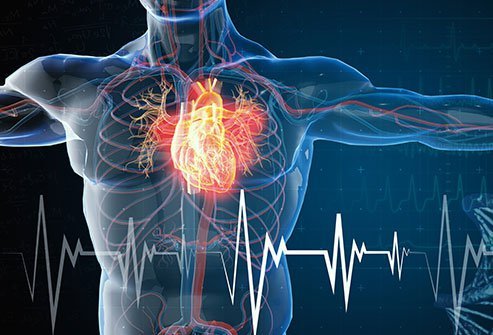
Things to Know About Heart failure. Heart failure is a condition in which the heart is unable to meet the needs of your body, as its pumping capability is affected. It is sometimes also known as congestive heart failure because heart failure often backs up blood, causing pooling of fluid in the lungs, eventually causing congestion that can cause shortness of breath.
Shortness of breath along with fluid retention is a characteristic symptom of heart failure. To get rid of it, the healthcare providers often prescribe diuretics- pills that pull out water from your body.
Heart failure often occurs as a complication of some conditions, such as narrowing of coronary arteries or hypertension. Due to these conditions, the heart becomes weak, and its pumping abilities are affected. If you are diagnosed with it, you must visit the Best Internal Medicine specialist in Lahore.
What are the Symptoms of Heart Failure?
The signs and symptoms of heart failure vary according to its severity from person to person. Moreover, they can be chronic or acute. It can show up as;
- Difficulty breathing upon exertion or lying down
- Cough that exacerbates upon lying down
- Weakness and fatigue
- Irregular or rapid heartbeat
- Inability to exercise
- Swelling, especially in the legs, ankles, and feet
- Cough or wheezing with productive mucus
- Swelling at the abdominal region
- Rapid weight gain due to fluid buildup
- Decreased alertness
- Difficulty concentrating
- Nausea
- Decreased appetite
- If heart failure is caused due to heart attack, it also causes chest pain.
What are the Causes of Heart Failure?
Heart failure occurs due to the conditions that damage it. They cause it to weaken or become too stiff to pump out blood. Eventually, it fails to meet your body’s blood requirement.
The damage due to any condition can cause stiffening of heart muscles of the ventricles-chamber that pumps out blood.
To know about the extent of heart failure, the healthcare providers monitor the ejection fraction of your heart. Ejection fraction indicates the amount of blood that leaves the heart. In a healthy individual, the ejection fraction is 50% or higher, which means that more than half of the blood-filled in the ventricle leaves it with each beat.
However, heart failure can occur with a normal ejection fraction. It occurs when the left ventricle fails to pump out blood efficiently, occurring when the heart muscle becomes too stiff due to conditions like high blood pressure.
What are the Types of Heart Failure?
A heart failure generally is of the following types;
- Right-sided heart failure- that occurs due to failure in the pumping abilities of the right ventricle. In it, the fluid may back up in the abdomen and legs, causing swelling.
- Left-sided heart failure-that occurs due to failure in the pumping abilities of the left ventricle. In it, the fluid may back up in the lungs, causing shortness of breath.
- Systolic heart failure- a condition in which the left ventricle can not contract properly, due to pumping problems. It is also known as heart failure with reduced ejection fraction.
- Heart failure with preserved ejection fraction- a kind of heart failure in which the ventricles can not fill properly. It occurs when the left ventricle doesn’t relax during filling.
What are the Complications of Heart Failure?
The complications of heart failure include;
- Kidney damage or kidney failure due to decreased blood flow to them
Damage to the heart valves as the pressure inside it becomes too much due to heart failure.
- Abnormal heart rhythm
Liver damage due to fluid accumulation affects its functioning. The liver, when, does not work properly, leads to various other complications.
Internal Medicine – When to See a Specialist
Sometimes you need to see a specialist if you have a problem. Often your regular doctor can help you with most of your illnesses, but every time a problem stops and you may have to go see someone commonly known as a “doctor”. If you want to see one of these many specialists you may hear that you are seeing a doctor of internal medicine.
Internal medicine is a broad medical specialty that deals with the diagnosis, treatment, and prevention of adults. Sometimes you will find that some of these specialists are doctors who are available for pediatric patients but are harder to find than adult specialists. These interns may act as primary care physicians but they are not considered general practitioners because they specialize in adult medicine, while a general practitioner may also see children.
You do not need bleeding or damage to see an internal medicine doctor
This term probably indicates that there is a problem inside the body but that does not mean that you should always go under the knife. If you see a rheumatologist, you are seeing one of these specialized doctors, and guess what surgery you do not need. For other disorders such as cardiological, neurological, and oncological, you may need to have surgery at some point. Just because you have a disease or disorder inside your body does not mean that the doctor needs to open you up.
If you have any signs and symptoms of heart failure, you should visit oladoc.com.
Read More: Hyaluronic Acid: A Natural Solution for Aging Skin